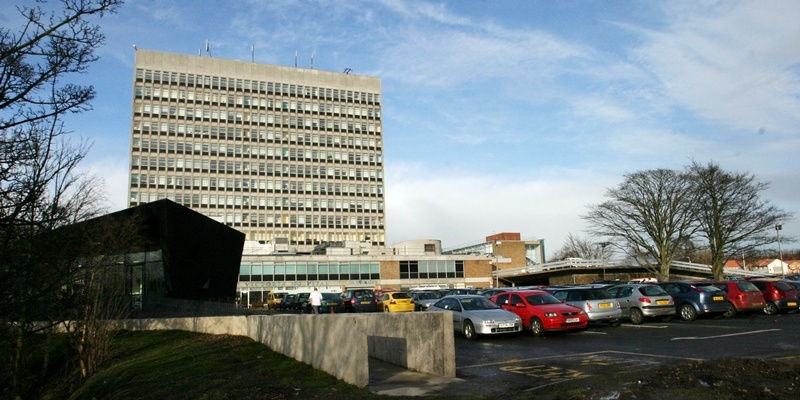Fife’s health chiefs have been called incompetent after they announced that overnight closures of Kirkcaldy”s accident and emergency unit are to continue for a second week.
Pressure is intensifying on Scottish health secretary Nicola Sturgeon to intervene in the ongoing crisis, which has left NHS Fife unable to staff A&E at Victoria Hospital overnight, and urgent answers are being demanded of the hospital’s managers.
NHS Fife revealed on Monday afternoon that despite its “continued best efforts,” its full contingency plan would once again be implemented until Friday morning.
This means the hospital’s A&E department will be closed to acute medical admissions from 5pm to 8am each day until then, with emergencies admitted about 10 miles away at Queen Margaret Hospital, Dunfermline. Victoria Hospital’s A&E will operate as a minor injuries unit only.
A spokeswoman for NHS Fife said the reason for the contingency continued to be gaps in overnight medical staffing.
“Despite concerted efforts it has not been possible to obtain any locum doctor cover,” she said.
“Patient safety is our primary concern. Implementation of the contingency plan ensures that clinical services are being provided with safe levels of medical staffing.”
This is the third time the contingency has been implemented for a full week. It was also rolled out during the weekend of Friday, July 9, and on the night of Sunday, July 4.
The announcement prompted accusations that NHS Fife is lurching between crises, with the real reasons kept hidden, and public confidence in the board is said to be eroding.
Kirkcaldy MSP Marilyn Livingstone, Fife Council’s Labour group leader Alex Rowley, and Councillor Andrew Rodger have secured a meeting with NHS Fife chairman James McGoldrick today to quiz him on the matter.’Not acceptable'”I think we need to step up the pressure on the health secretary to intervene because this is not an acceptable situation we are finding ourselves in,” said Mr Rowley.
“People across Fife should be concerned that our health service seems to be bouncing along from day to day and it’s unclear what service we can receive.
“I’m highly critical of NHS Fife and I’ll be making very clear to Professor McGoldrick that this is not a satisfactory situation.
“The level of transparency is appalling. They need to explain exactly what the issues are, whether it’s a Scotland-wide problem or just a Fife problem, and if it’s a Fife only problem, why don’t junior doctors want to come here?
“I have to wonder whether this incompetent management within NHS Fife will lead to NHS Fife being broken up.
“I don’t think the people of Fife can have any confidence in the senior management of Fife Health Board and that’s the message I’ll be taking to Professor McGoldrick tomorrow.”
Mrs Livingstone echoed Mr Rowley’s sentiments and said, “This is undermining people’s confidence in the health service.
“I met with Nicola Sturgeon and she and everybody else assured me this contingency would only be used in an emergency.
“I’m really concerned because it’s now becoming the norm.
“I’m concerned about what effect it’s having on constituents and the effect it’s having on the ambulance service.
“Whoever is responsible for this needs to get it sorted because I am fast losing patience.
“This is not acceptable. A&E is a vital service which should not be removed.”
Councillor Rodger, meanwhile, is so incensed by the matter that he is considering holding a protest outside Victoria Hospital to highlight what he considers a lack of openness, honesty and transparency from the board.
Mr Rodger said, “What they are doing is totally unacceptable and unless I get answers I will be protesting outside the hospital. It’s a disgrace.”
The contingency plan was prepared by NHS Fife in November as a response to circumstances where staffing difficulties mean it is not possible to admit overnight at the Victoria Hospital.
It was drawn up as a result of reductions in the hours medical staff can work under the European Working Time Directive and there have been changes in clinical practice which have led to increasing specialisation.
In addition, the recruitment of locums is becoming increasingly difficult.
